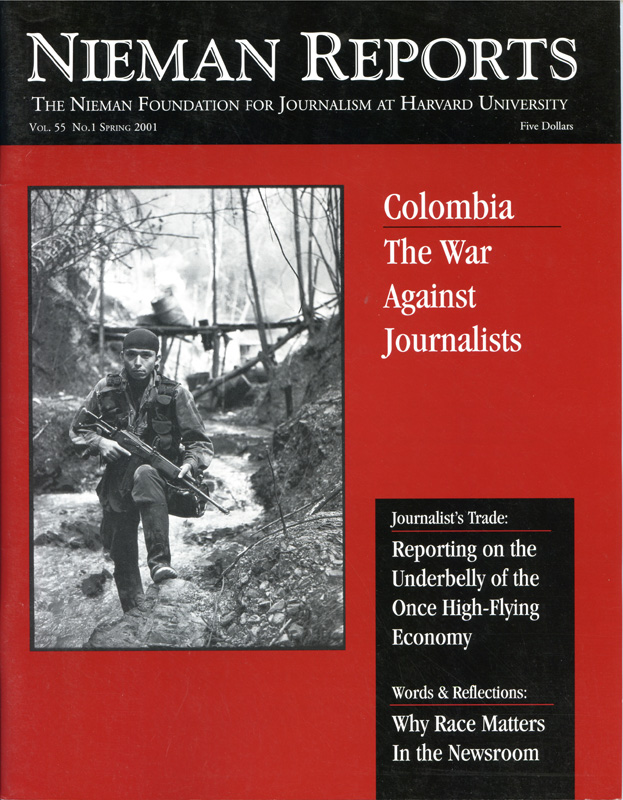All photos by Steve Salisbury.©
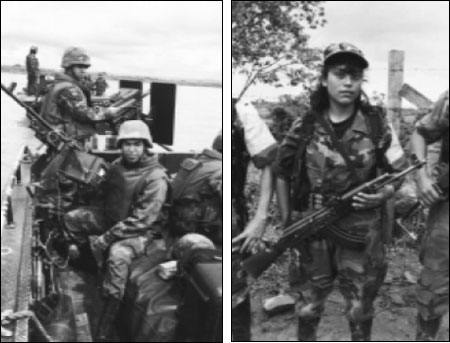
At left, Colombian Marines patrol the Magdalena River in north central Colombia, one of the country’s most dangerous areas. At right, adolescent girls make up a significant part of the FARC guerrilla movement’s strength. They are injected with contraceptives each month to prohibit them from getting pregnant.
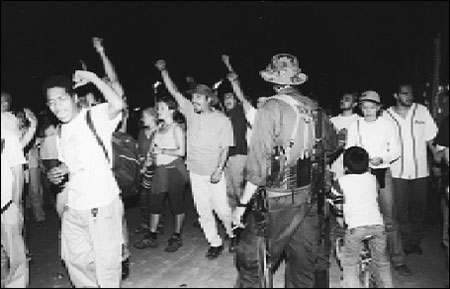
A FARC soldier watches as members of the Communist Youth Movement shout slogans against the United States and Colombian governments. FARC sometimes organizes such demonstrations.
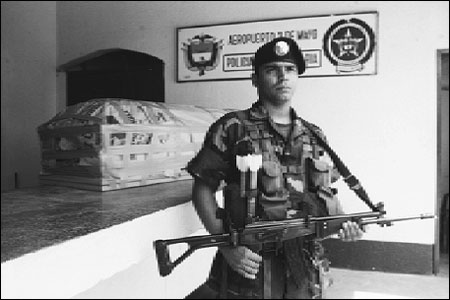
A Colombian soldier stands in front of a casket containing the corpse of a murder victim. As with many murders in Colombia, townspeople couldn’t or wouldn’t say who the killers were.
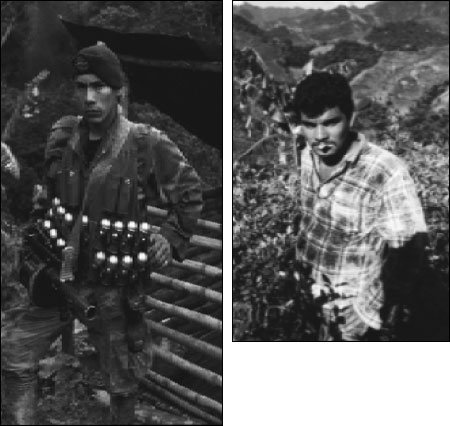
At left, a Colombian Army soldier, armed with a South African-made 40mm grenade launcher, stands as a cocaine laboratory that soldiers torched blazes behind him. At right, a peasant coca farmer chews a coca leaf as he stands by his two-hectare plot of coca bushes. He harvests six times each year, grossing about $900 each harvest, more than he can earn growing legal crops such as rice, yucca and plantains.
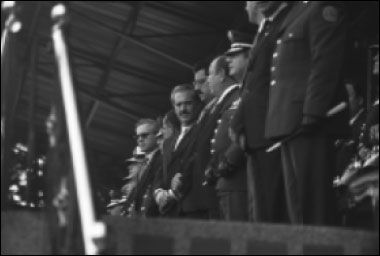
Colombian President Andrés Pastrana (center) with military officials.
Steve Salisbury has lived and worked as a journalist and photographer in Latin America since 1981, specializing in guerrilla conflicts and drug wars. His photos have appeared in The New York Times, The Washington Post, GEORGE, Men’s Journal, Colombia’s largest newsmagazine, SEMANA, and other publications. His articles have been published in SEMANA, Jane’s Intelligence Review, The Washington Times, The Nation, and elsewhere.

At left, Colombian Marines patrol the Magdalena River in north central Colombia, one of the country’s most dangerous areas. At right, adolescent girls make up a significant part of the FARC guerrilla movement’s strength. They are injected with contraceptives each month to prohibit them from getting pregnant.

A FARC soldier watches as members of the Communist Youth Movement shout slogans against the United States and Colombian governments. FARC sometimes organizes such demonstrations.

A Colombian soldier stands in front of a casket containing the corpse of a murder victim. As with many murders in Colombia, townspeople couldn’t or wouldn’t say who the killers were.

At left, a Colombian Army soldier, armed with a South African-made 40mm grenade launcher, stands as a cocaine laboratory that soldiers torched blazes behind him. At right, a peasant coca farmer chews a coca leaf as he stands by his two-hectare plot of coca bushes. He harvests six times each year, grossing about $900 each harvest, more than he can earn growing legal crops such as rice, yucca and plantains.

Colombian President Andrés Pastrana (center) with military officials.
Steve Salisbury has lived and worked as a journalist and photographer in Latin America since 1981, specializing in guerrilla conflicts and drug wars. His photos have appeared in The New York Times, The Washington Post, GEORGE, Men’s Journal, Colombia’s largest newsmagazine, SEMANA, and other publications. His articles have been published in SEMANA, Jane’s Intelligence Review, The Washington Times, The Nation, and elsewhere.
